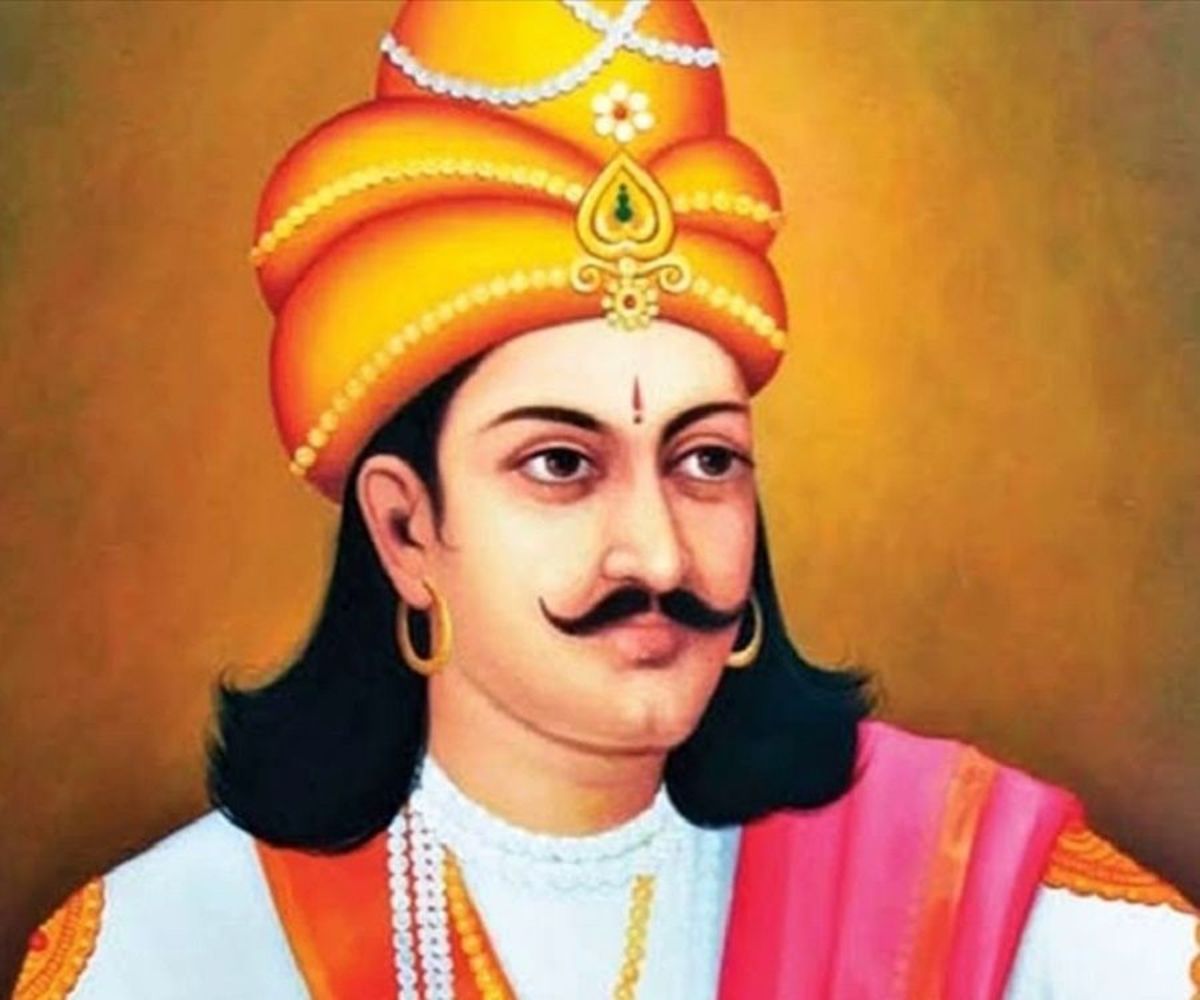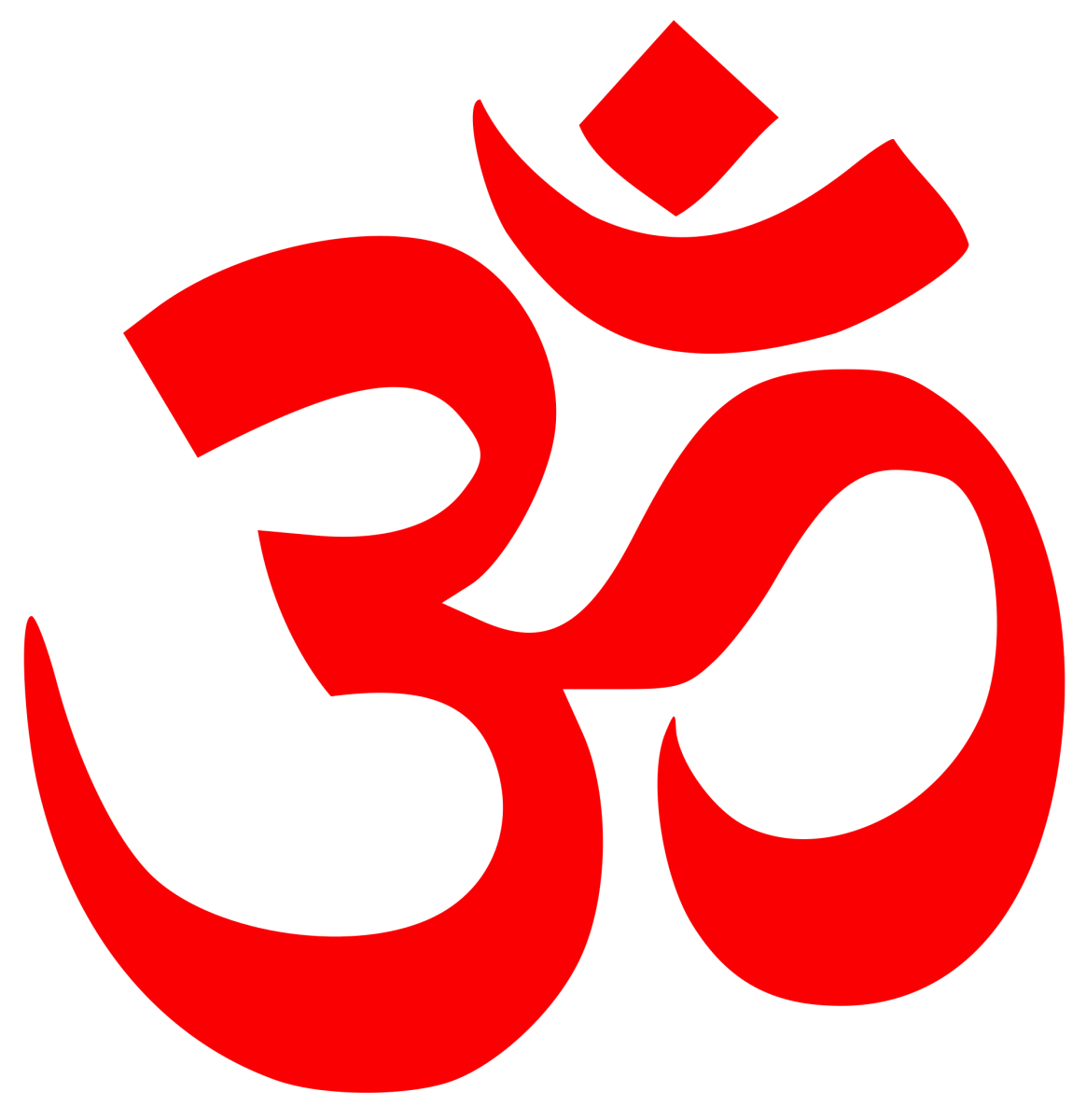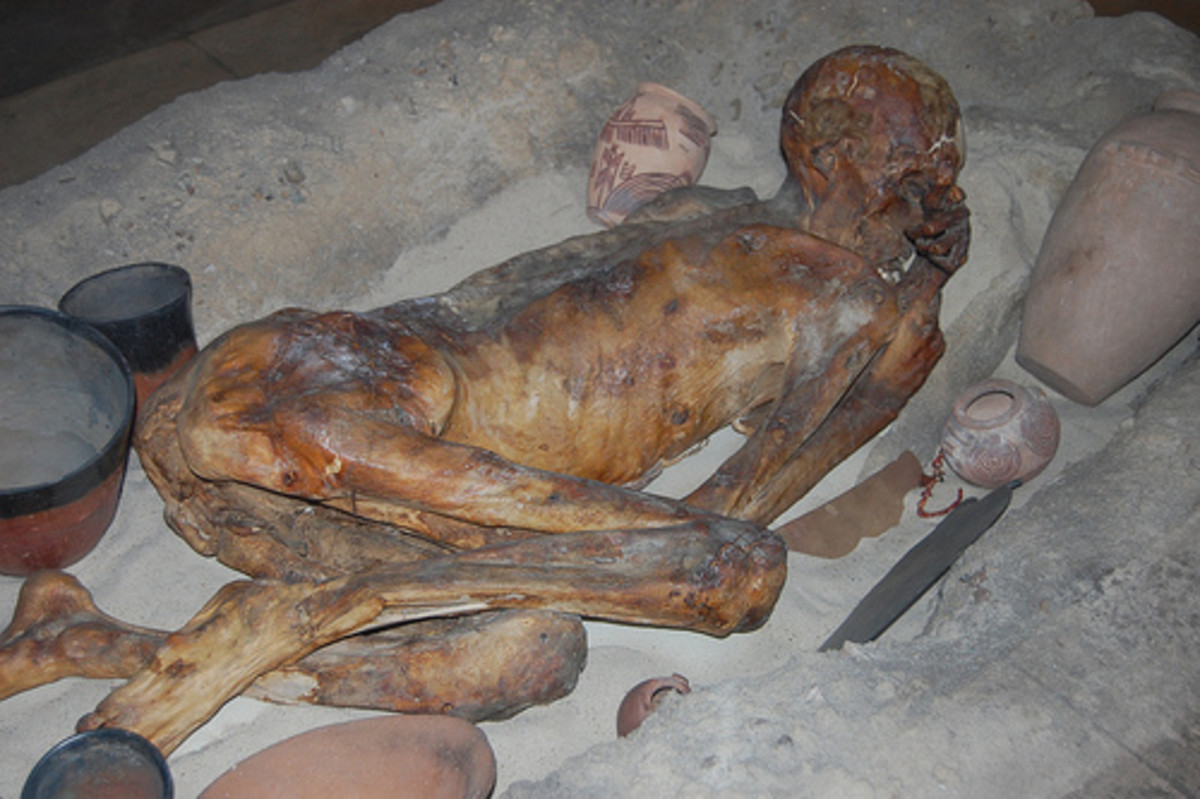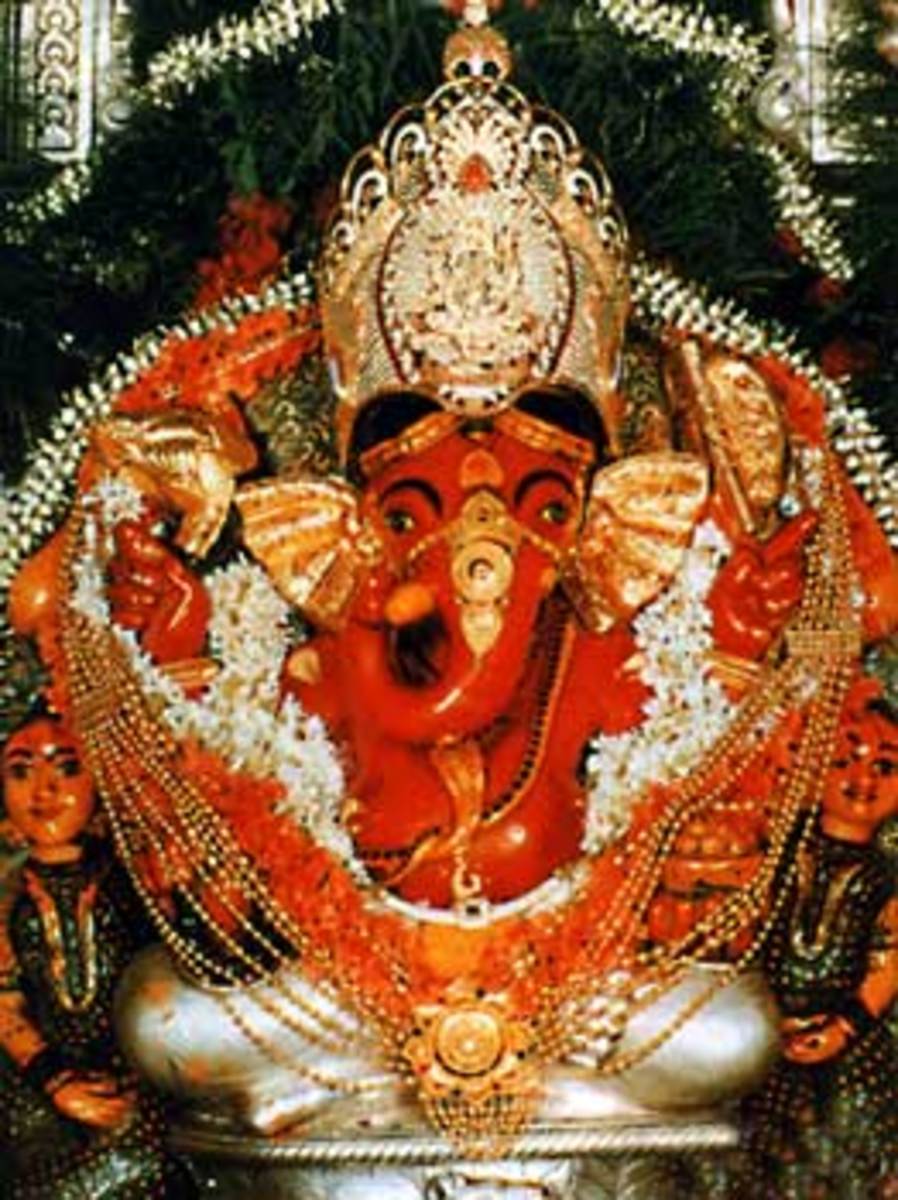Philosophy Simplified: Hinduism
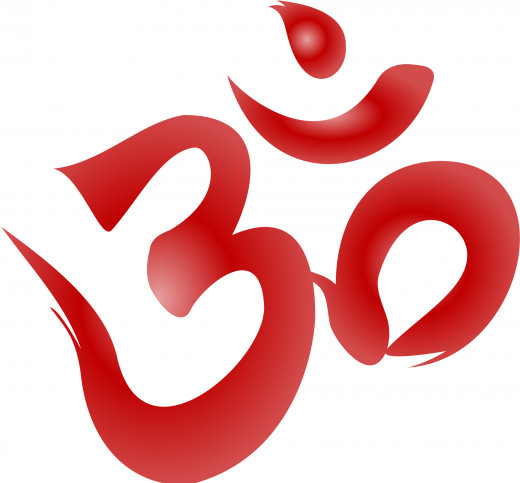
History
The history of Hinduism is divided into multiple periods based on the scriptures produced and the culture spread on the subcontinent.
Prevedic:
This period refers to the pre-historic ages of India and the Indus valley civilizations. The latter societies already showed some figurines and symbols that are still found in Hinduism even today. However, no remains of religious buildings or burials were found so far that would date from this period.
Vedic:
This period marks the coming of the Indo-Aryans from 1750BC to 500BC. These people brought the Vedic religion with numerous indo-European gods that resemble the Germanic, Scandinavian and Greek ones. The vedas were composed during this period, the oldest sacred texts in Hinduism.
There are four Vedas (Rigveda, Yajurveda, Samaveda and Atharvaveda), and each of them having four parts:
- Samhitas, detailing mantras and benedictions
- Aranyakas, detailing rituals and ceremonies
- Brahmanas, commentaries on rituals and ceremonies
- Upanishads, detailing philosophy and meditation
The Upanishads mark the first traces of philosophy on the Indian subcontinent.
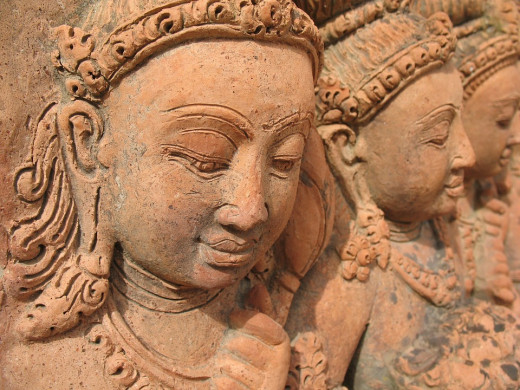
Second Urbanisation:
This period lasted from 500BC to 200BC, during which the rising population and the ever growing towns in India led to the Sramana movement with numerous spin-off denominations and new ways of life born in the region, including Jainism and Buddhism.
It's unclear whether Hinduism improved certain aspects which were later adapted to these movements, or if it was in fact Hinduism reacting to the new philosophies, but this period saw changes in the Hindu worldview.
Classical Hinduism:
The age of classical Hinduism lasted from 200BC to 1100AD. During this period the Vedic-Brahmatic culture spread all over the subcontinent as well as southeastern Asia.
Most of what we know about ancient India derives from scriptures that were created during this period, for example the epics depicting the battles and kingdoms of the early ages on the subcontinent as well as the different Hindu ways of life and schools of philosophy, like Yoga or Vedanta.
This period saw the construction of the first temples dedicated to Hindu deities and the decentralization of the religion itself to local denominations in India as the Gupta Empire collapsed.
Under Islamic rule:
The period between 1200AD and 1750AD marks confrontations between the Muslims and the Hindu in India as well as the two religions influencing each other. Hinduism retreated to the southern and eastern parts of the subcontinent, while some inner areas grew completely mixed Muslim-Hindu.
During the early modern times Hinduism went through a resurrection in the states of Vijayanagar and Maratha. The Maratha Confederacy ended up overthrowing the crumbling Muslim Mughal Empire, thus securing borders for a Hindu India once again. Yet the conflicts between the two religions continue even today.
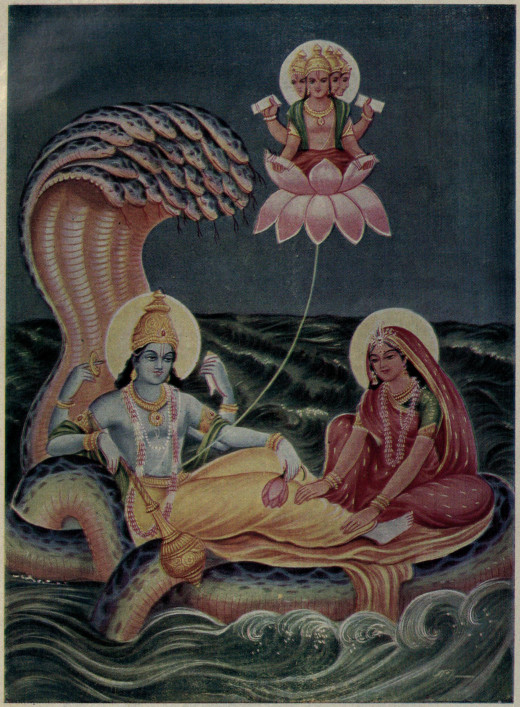
Creation
Hindus believe that the ultimate reality has three aspects, shown in the three main gods.
- Brahma: the creator and source of the universe
- Vishnu: the one upholding and managing the universe
- Shiva: the destroyer, the necessary change in the universe.
Different Upanishads provide different explanations to the creation of the universe as a process, one comparing it to the breaking of an egg, other to the building of a house.
Karma
Karma is the spiritual practice of cause and effect, meaning the idea of positive and negative intents and deeds will influence the future with the same energies. It's a philosophical concept included in many eastern religions, including Jainism, Buddhism as well as Hinduism.
With reincarnation included, meaning that after death the soul is reborn in a new body, karma may influence both one's current life and afterlife.
Karma in Hinduism developed from the very early Upanishads and is influenced by four factors:
- Thoughts
- Attitude and words
- Actions we perform from free will
- Actions we perform on order
There are three kinds of Karma in Hinduism:
- Sanchita: one's "karma pool", accumulated karma from which some is taken out for a lifetime.
- Prarabdha: karma appearing in one's life
- Kriyamana: karma produced in current life
Deity concepts
The deity concept varies a lot in Hinduism, with some denominations and regional variations being monotheistic, some polytheistic and some even atheistic with a belief of deity-denial. The Creation Hymn can be interpreted either way.
Hindu core belief states that everything has an atman, a soul. Monistic Hindus believe this to be part of the universal whole, the Brahman, while dualistic schools separate the universe from the distinct souls and look at the universe as something represented in the gods.
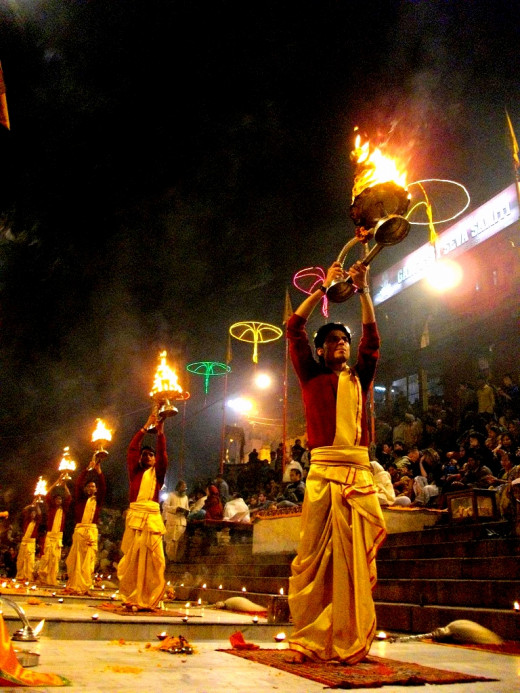
Practices and rituals
Hindu rituals are as varied as the world's religions are, with different ceremonies, practices and rituals for every person and every home.
There are also numerous sanskara in a Hindu's life, celebrations of milestones achieved. Most Hindus observe 17 main rites of passage, ranging from weddings to pregnancy.
The ultimate goal of life for a Hindu is Moksha, which is the relaxation of the mind and union with the universe. Means to attain Moksha can be deity worship, learning, working and meditating.
The religion frequently celebrates festivals over the course of the year, ranging from small family-scale events to some that involve the whole of the society.
Pilgrimage is not mandatory in a Hindu's life, but there are still some who travel to sacred cities and sites in India over the course of their lives.
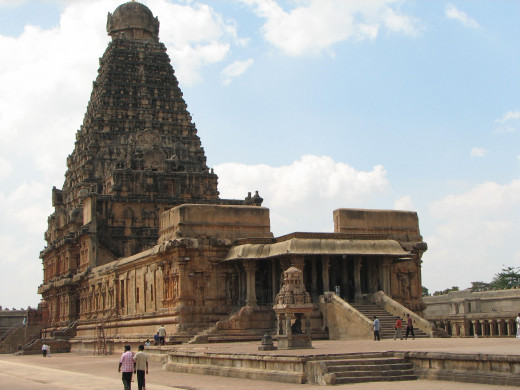
Institutions
Temple:
Hindu temples are places of gathering seeking to bring humans and gods together, with heavy symbolism involved in the layout, structure, carvings, decorations and ornaments. There are as many kinds of Hindu temples as regional variations of the religion itself, meaning that some worship in elaborately decorated halls while others merely visit cave shrines. The symbolism however binds all of them together.
Monasteries and monks:
Some Hindus give up their normal life and commit themselves completely to the spirit's liberation, to become a sanyasi (male) or sanyasini (female). Hindu monks are highly respected in society, and only a fraction of them live in monasteries, others wander the lands.
Denominations
Hinduism has hundreds if not thousands of denominations and local variations, with different avatars and gods followed or even denied. While listing all of these would leave this article too long for the decent mind to digest,
Vaishnavism:
Followers of this denomination adore the god Vishnu along with Krishna and Rama. Worshipers are very social, refusing ascetic or monastic lives and instead spending their days with the community. Vaishnavism is a dualistic denomination.
Shaivism:
Shainists worship the god Shiva. Believers are more prone to live an ascetic, monastic life and the denomination promotes devotionalism. Most Shainists are monotheists, without avatars and believing their god to be a fusion of male and female characteristics. Shaivism involves numerous celebrations as well as pilgrimages.
Shaktism:
Followers of this denomination worship the goddess Shakti, the cosmic mother. Worshipers usually practice Tantra, an ancient Hindu tradition of channeling cosmic energy into the individual through meditation in order to attain moksha.
Smartism:
This denomination focuses on most major Hindu deities. Worshipers set out on a path to understanding their union with the gods, their journey taken through Jnana yoga, studies, meditation and certain special rituals.
Philosophy Simplified - The landing page
- Philosophy Simplified: Introduction and Table of Contents
A beginner's guide to philosophy, from Thales to Wittgenstein, from ancient Greece to modern Britain. Each article describes an important topic in philosophy, aimed to teach and entertain.
Learn more!
© 2015 Medvekoma

